Arizona sees spike in demand for VPNs following the introduction of age verification laws
US-wide interest in the privacy tools is also rising
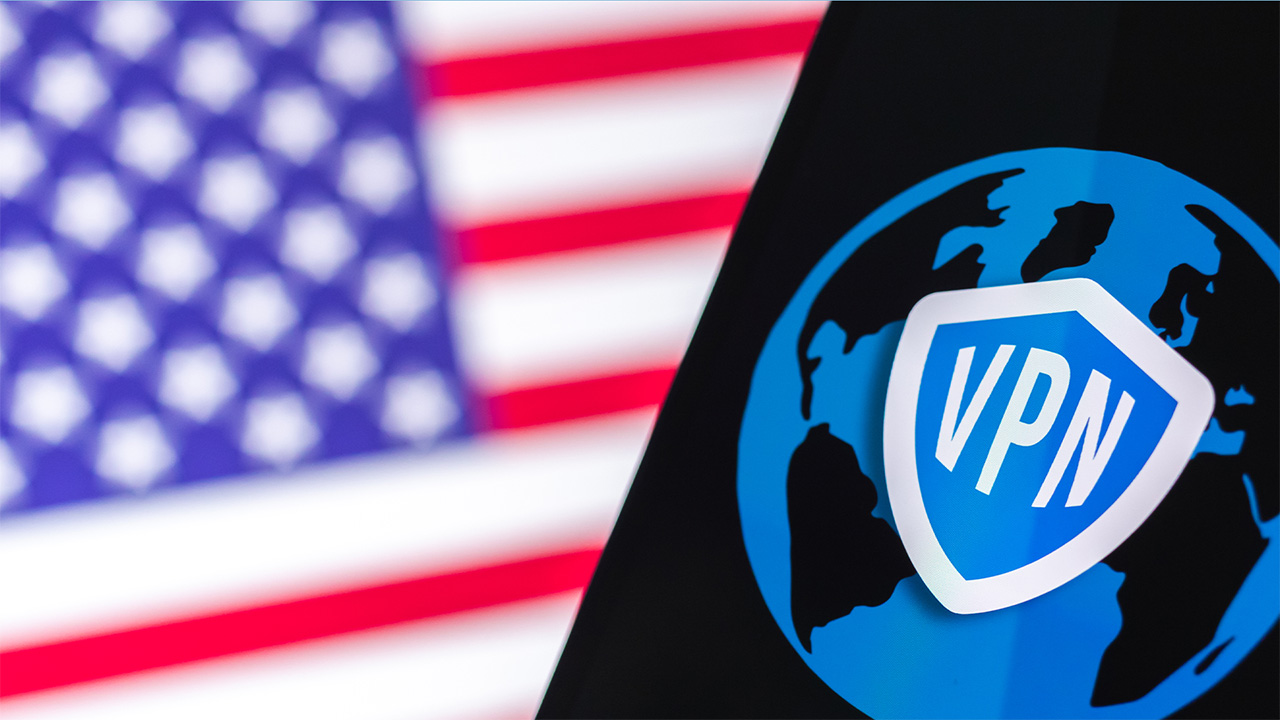
Here at Tom’s Guide our expert editors are committed to bringing you the best news, reviews and guides to help you stay informed and ahead of the curve!
You are now subscribed
Your newsletter sign-up was successful
Want to add more newsletters?

Daily (Mon-Sun)
Tom's Guide Daily
Sign up to get the latest updates on all of your favorite content! From cutting-edge tech news and the hottest streaming buzz to unbeatable deals on the best products and in-depth reviews, we’ve got you covered.

Weekly on Thursday
Tom's AI Guide
Be AI savvy with your weekly newsletter summing up all the biggest AI news you need to know. Plus, analysis from our AI editor and tips on how to use the latest AI tools!

Weekly on Friday
Tom's iGuide
Unlock the vast world of Apple news straight to your inbox. With coverage on everything from exciting product launches to essential software updates, this is your go-to source for the latest updates on all the best Apple content.

Weekly on Monday
Tom's Streaming Guide
Our weekly newsletter is expertly crafted to immerse you in the world of streaming. Stay updated on the latest releases and our top recommendations across your favorite streaming platforms.
Join the club
Get full access to premium articles, exclusive features and a growing list of member rewards.
Searches and interest in the best VPNs have spiked in Arizona following the state's age verification laws coming into effect on September 26, 2025.
According to Google Trends data, Arizona had the highest search interest for "VPN" out of any US state over a 30-day time period – significantly more than second-placed Maryland.
Many Arizonans, along with millions of Americans, see VPNs as a potential way to bypass age verification laws.
Despite their good intentions, the laws require internet users to hand over sensitive personal information in order to have their age verified and access certain websites. This comes with cybersecurity risks – risks some won't feel comfortable taking.
24 US states now have active age verification laws. Some have been in place for a while and others are in their infancy. Other US states have age verification bills yet to become law.
Data surrounding the best US VPNs is still emerging, but there have been reports of an increase in sign-ups. There is also a clear spike in interest and searches for the privacy tools.
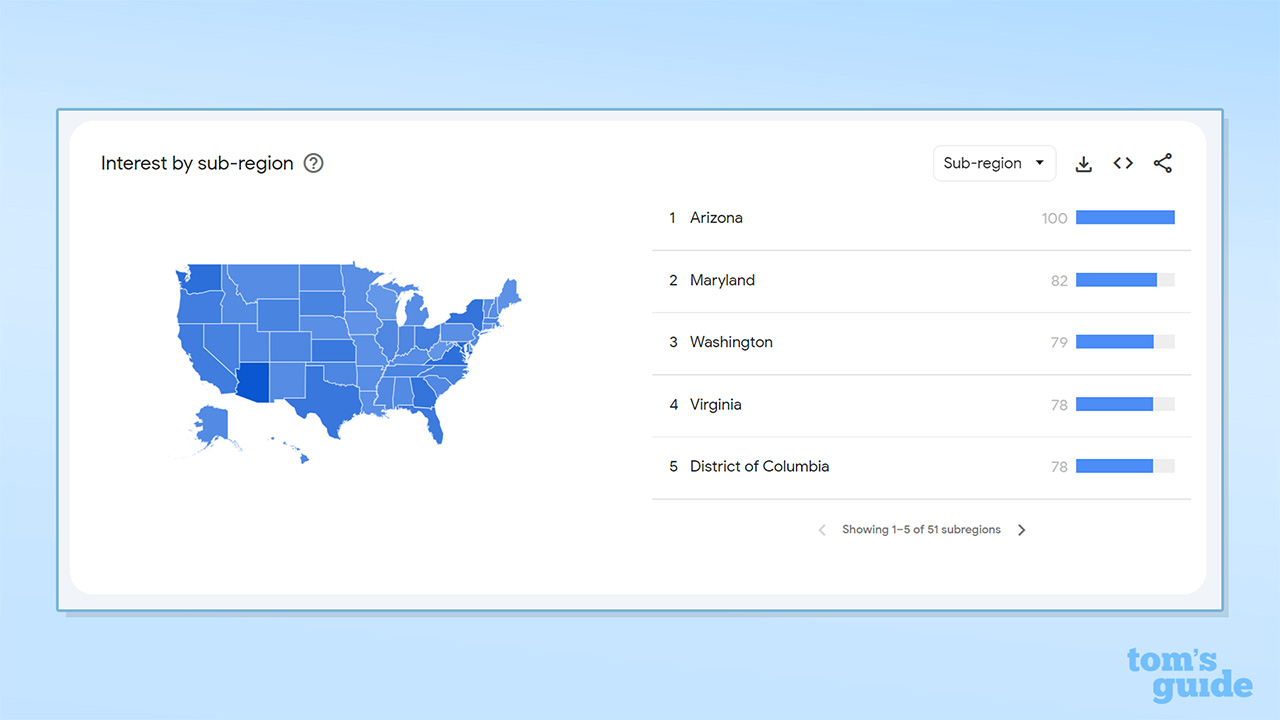
Arizona leads the way
Arizona saw a sharp increase in searches for VPNs over the 30 days leading up to October 3, 2025. There was a steady rise in the two weeks leading up to the state's age verification law introduction on September 26.
A sharper rise took place in the days leading up to September 26 and searches for VPNs were at their highest on September 27.
While remaining high, interest did drop off a little between September 28-30 but rose again.
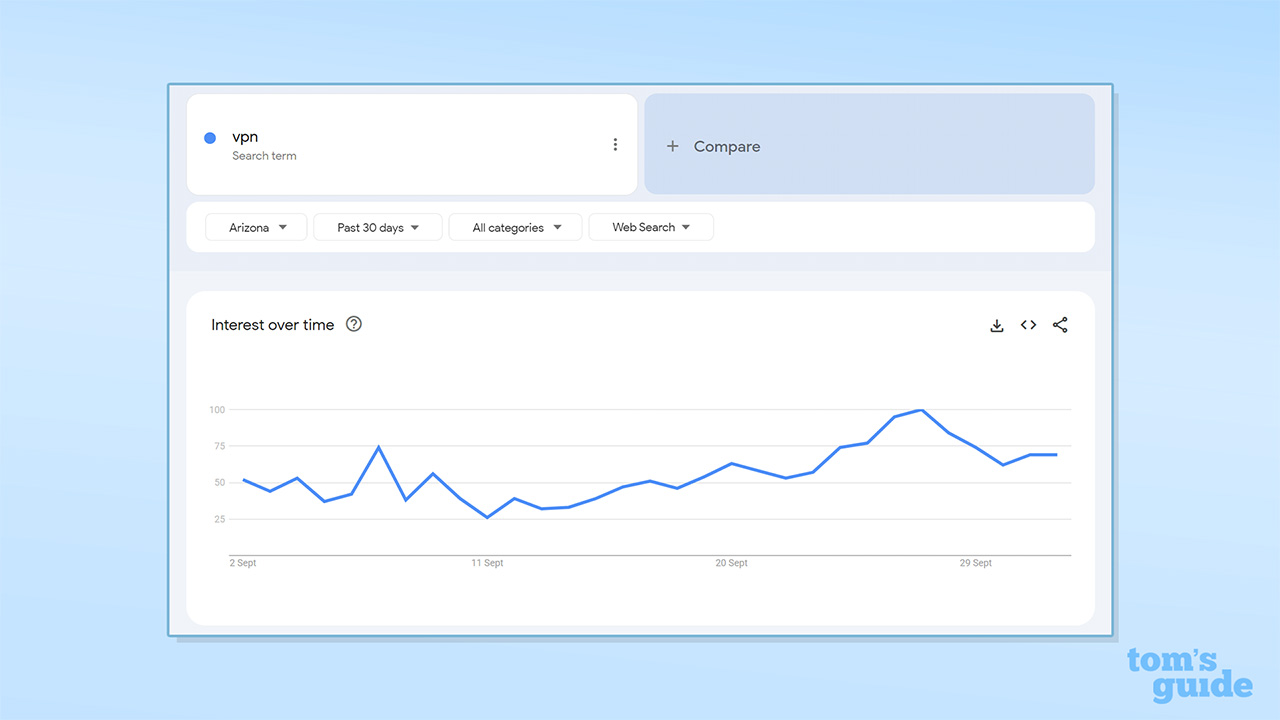
Proton VPN confirmed to Tom's Guide that it has "seen some lift" in VPN sign-ups in the US. It reported an increase in Arizona of 450% over the baseline.
As well as currently being the fastest VPN we've tested, Proton VPN offers one of the best free VPNs – Proton VPN Free. It's a genuine, secure, and reliable free VPN and may be a popular option for those new to VPNs or those who may not want to pay for one.
Google Trends data also showed "Proton VPN download" as a breakout and rising search term in Arizona over the 30 days. "VPN for Safari," "how much is NordVPN," and "is NordVPN free" were also top five rising breakout search terms.
To clarify, NordVPN isn't free. Its cheapest price is $3.09 per month ($83.43 up front pre-tax) for 27 months of protection.
There are also a number of VPN-related "top" search terms for Arizona over the 30 days. These included "VPN free," "best VPN," "what is VPN," "iPhone VPN," and "NordVPN."
This shows there is an appetite and peaked interest in VPNs amongst Arizonans.
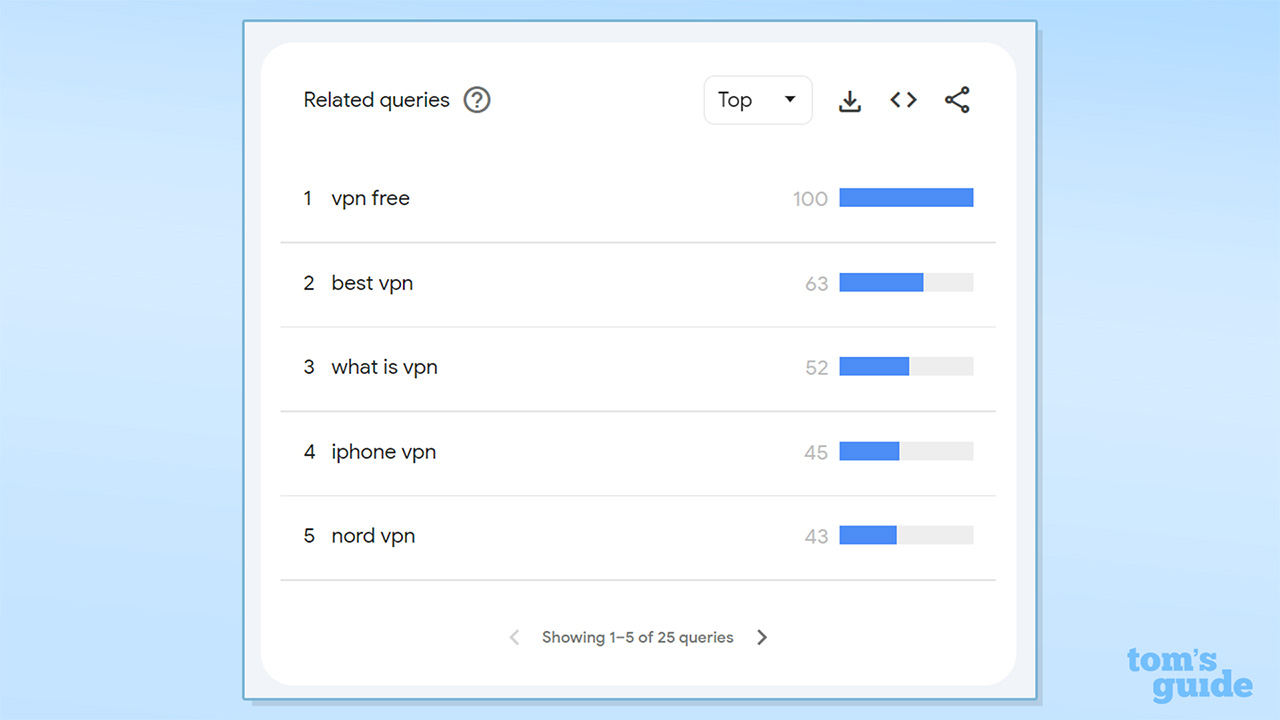
NordVPN: our top-rated VPN service
From our research and reviews, NordVPN has come out as the best-performing VPN for most people. It's fast, offers excellent privacy, and also unblocked every streaming site from around the world we tested it with.
Prices start at $3.09 per month on the 2-year plan ($83 plus tax paid up front), and this also includes 3 months free. There's a 30-day money-back guarantee so you can test it out risk-free.
Interest across America
Arizona is not the only US state to receive age verification laws. Ohio's laws came into effect on September 30 and the state has seen an increase in VPN interest.
When looking at all US states, Ohio's VPN search interest isn't as high as Arizona's, but searches are still rising.
Over the same 30 days, Ohio has seen steady, middle-of-the-road interest in VPNs. However, a significant spike was seen between September 28-30 – right as age verification laws came into effect.
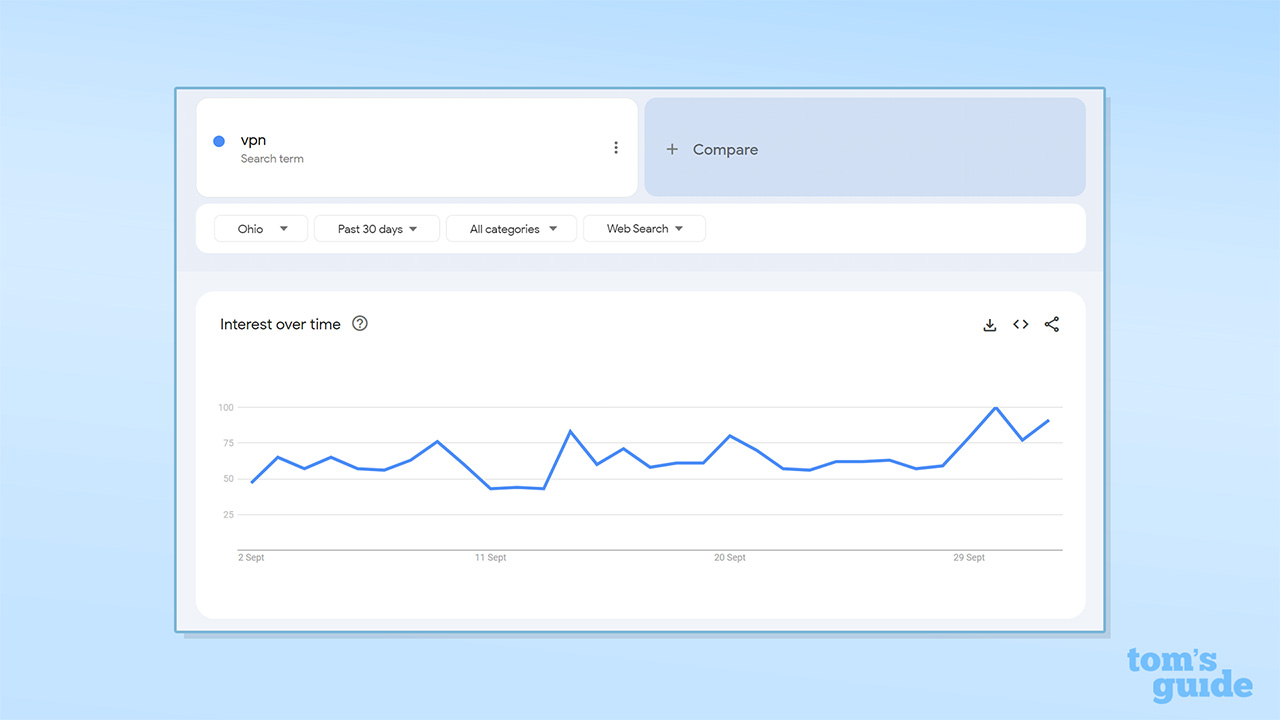
October 1 saw a slight drop, but searches rose again on October 2. Related "top" search terms for Ohio include "free VPN," "best VPN," "what is VPN," and "Proton VPN." For rising breakout terms, "VPN for Netflix" has also been recorded.
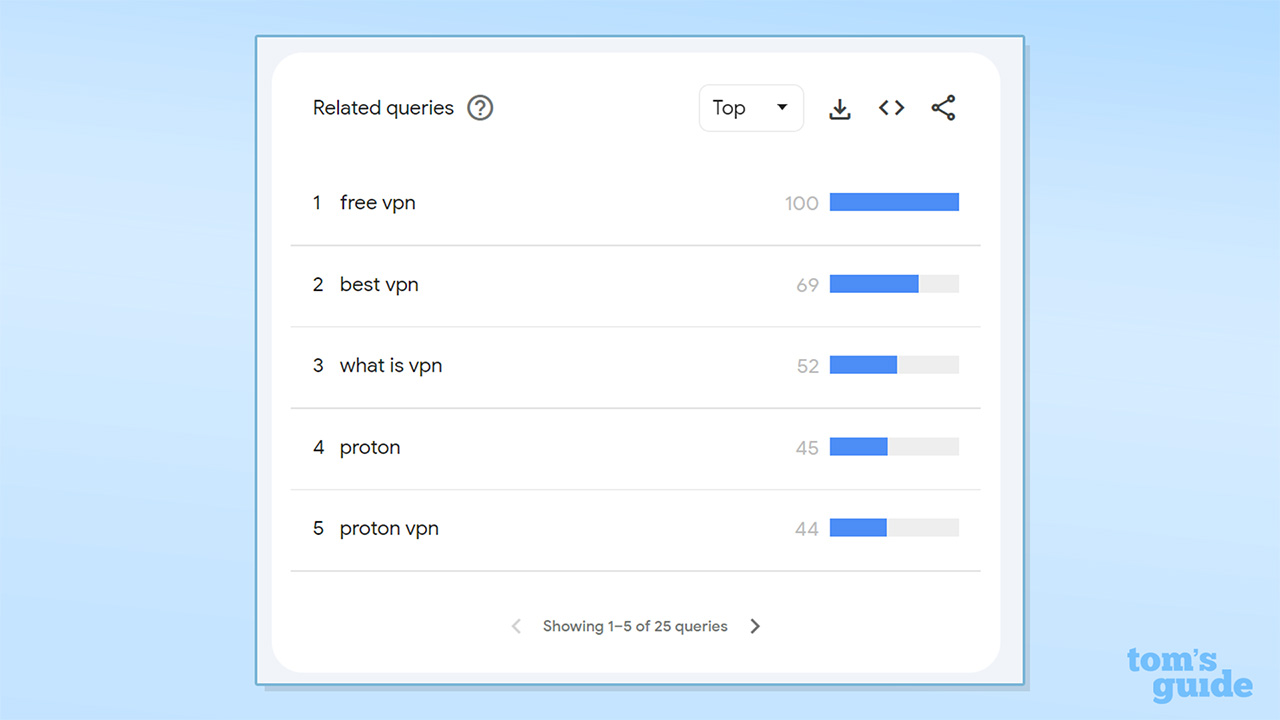
Missouri has passed age verification laws, due to come into effect on November 30. VPN search terms in the state haven't seen the same spikes as Arizona and Ohio but they are fairly high.
We'd expect this interest to rise in the coming weeks as the law's effective date draws nearer.
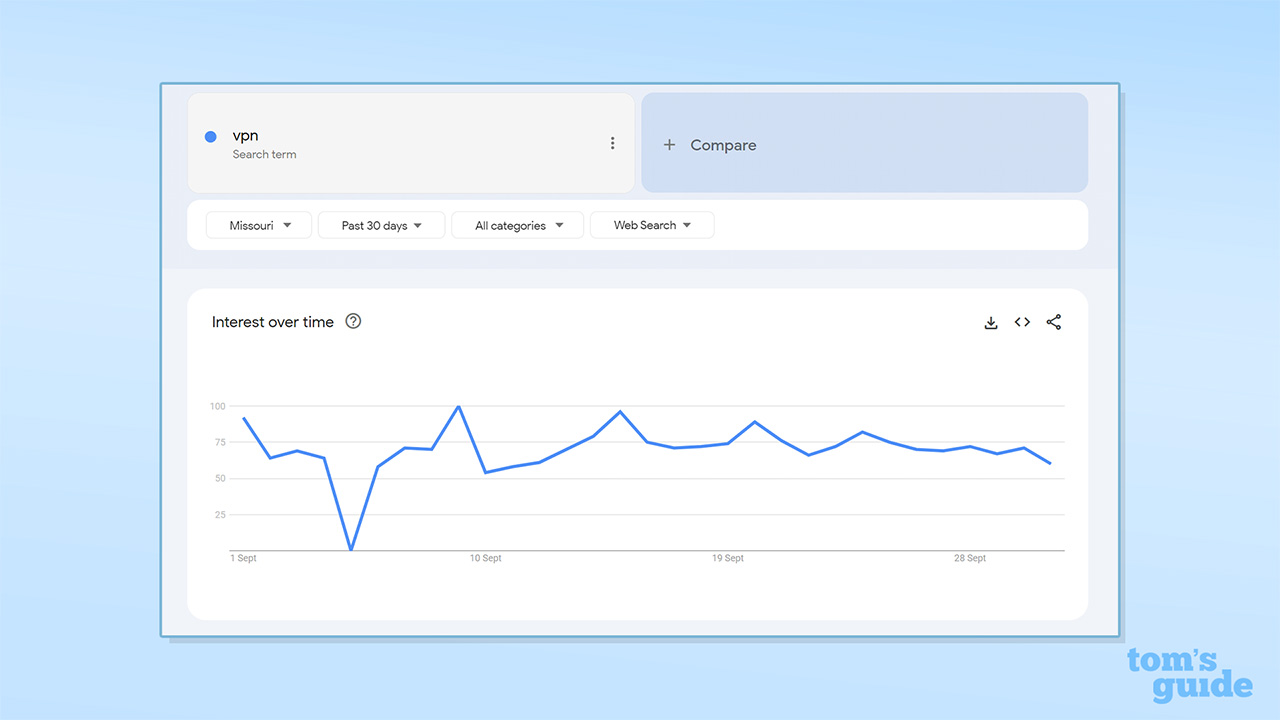
Michigan hasn't yet passed age verification laws but it does have a bill in the committee stage, having been referred on May 6 2025.
As well as this, a group of lawmakers have proposed a total VPN ban as part of a proposed "Anticorruption of Public Morals Act." The bill was introduced in September 2025 and looks to block "circumvention tools" used to access "certain material on the internet that corrupts the public morals."
If passed, the sale of VPNs would be banned and fines for promoting the privacy tools would be up to $500,000.
This would be an incredibly dangerous move. It can be seen as internet censorship and will seriously restrict the internet freedoms of millions of people.
Searches for VPNs in Michigan were high between September 12-20, when this bill was introduced. Despite tailing off a little, searches remain higher than average.
Rising breakout search terms include "what is a VPN on iPhone", "free VPN download," and "NordVPN cost."
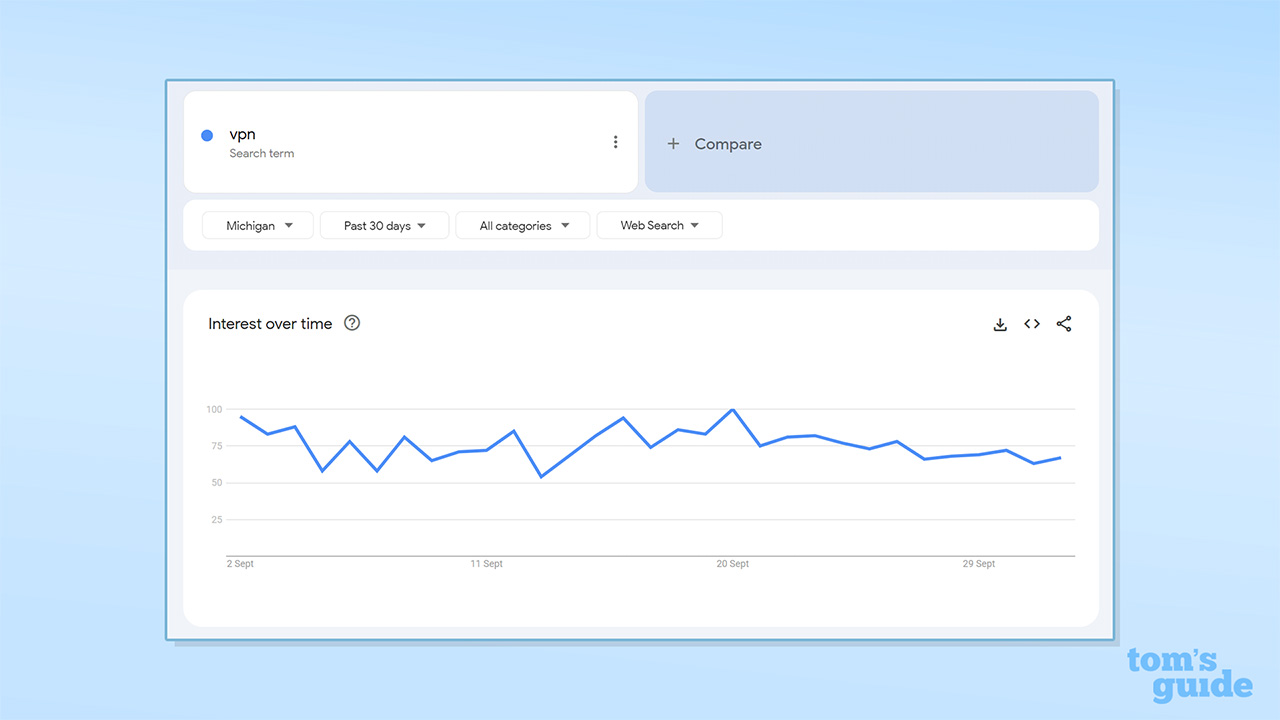
Wisconsin referred an age verification bill to Senate committee on March 21, 2025. Like most bills, it calls for the implementation of age verification checks in order to protect children from accessing harmful content.
The bill also calls for sites to block VPN traffic – a dangerous move that compromises the privacy of internet users.
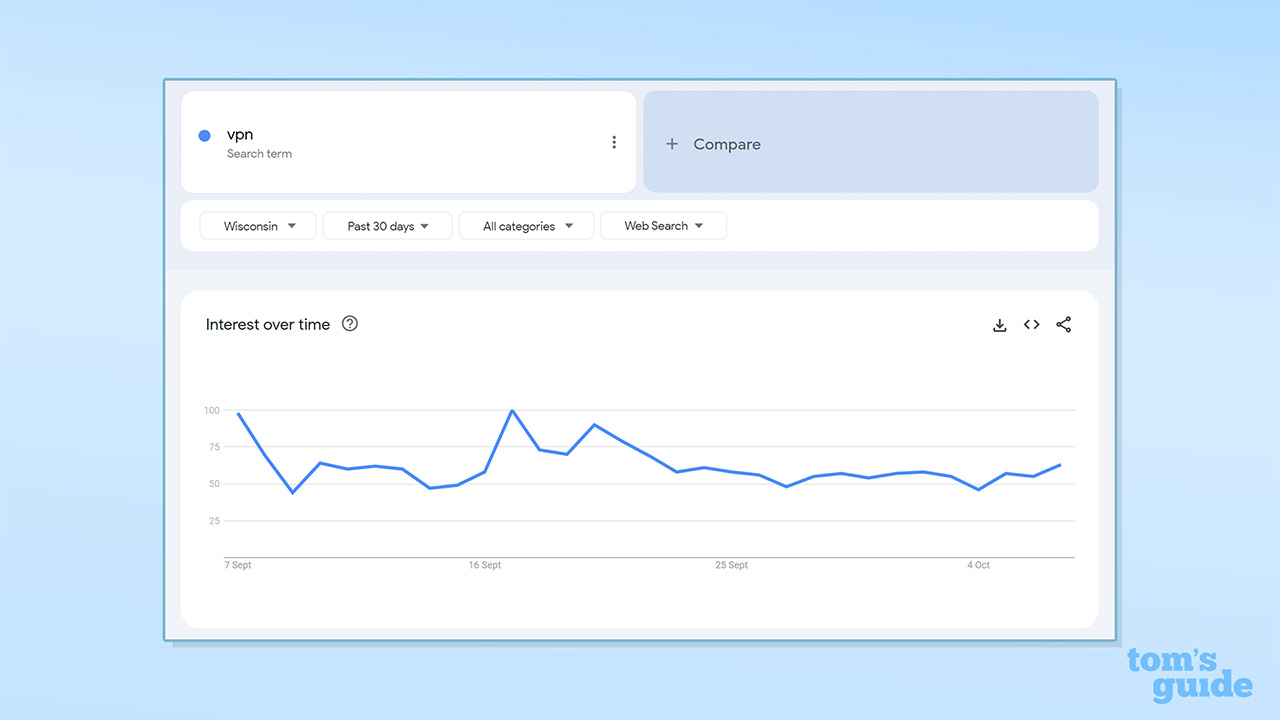
Arizona led the way when it comes to VPN search interest. But it's clear that Americans are investigating the privacy tools and their uses.
As more people face internet restrictions and have their online privacy attacked, we will likely see even greater interest in VPNs.
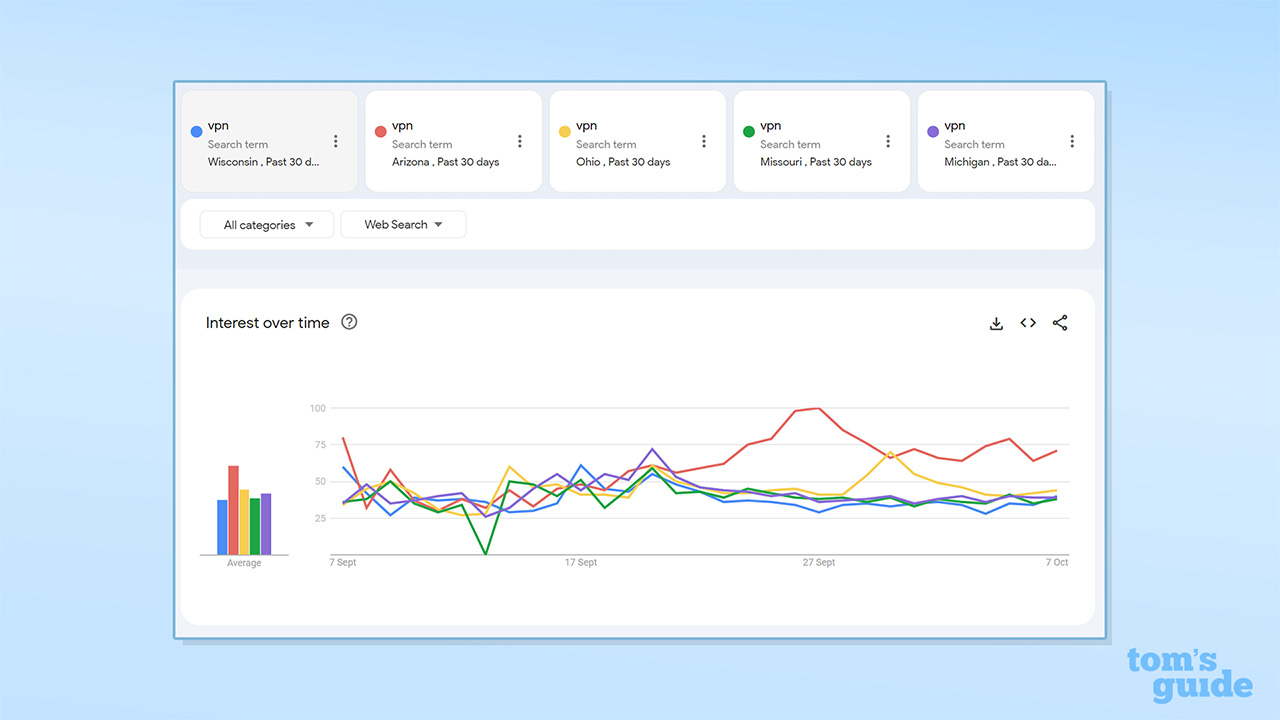
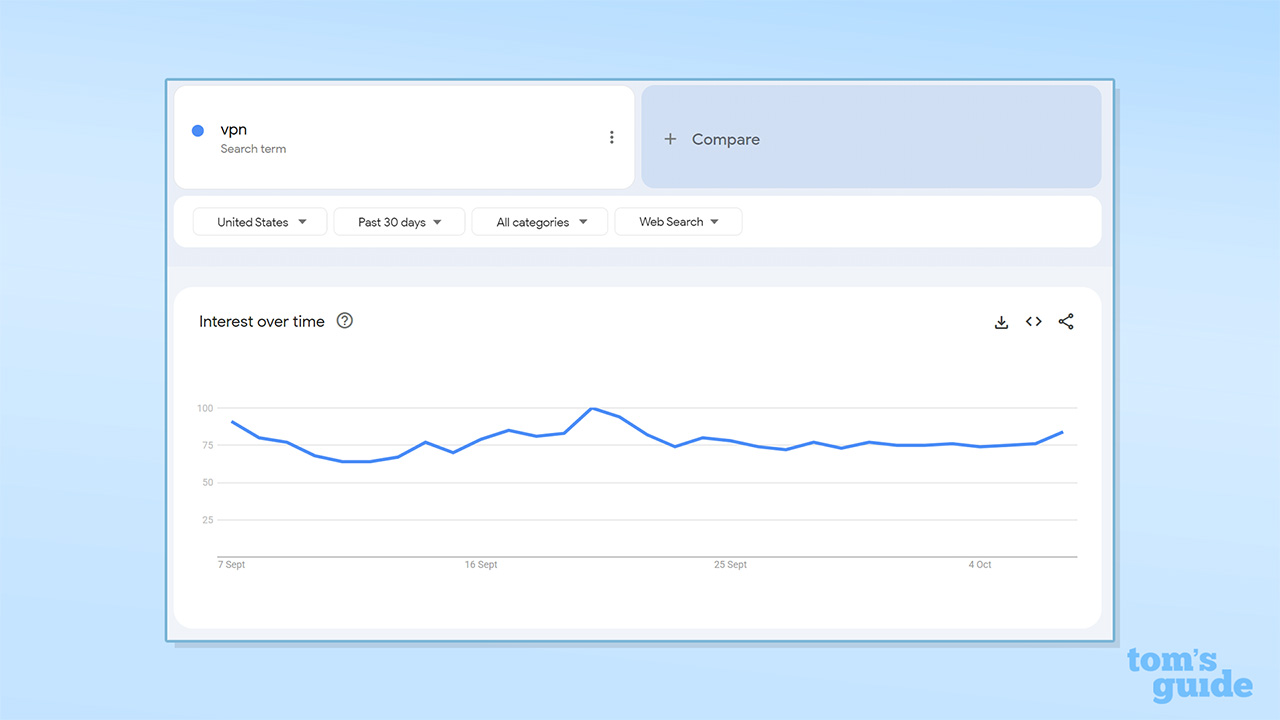
Are age verification laws the answer?
It has been debated whether trying to police the internet through age verification laws and blocks is an effective way of combating cybercrime or protecting children from harmful content. Attacking VPNs is also not the answer.
Laura Tyrylyte, privacy advocate at NordVPN said: "We recognize that age verification laws are a response to legitimate concerns about protecting children online."
However, Tyrylyte added that "age verification requirements necessitate customers to disclose sensitive personal information to third-party processors, many of which operate outside controlled environments."
"These requirements pose significant risks of data breaches, profiling, and abuse issues."
"Device-level controls are the most effective way to manage children's internet access," Tyrylyte said. Parental control tools were the example given and these can see app downloads limited, age ratings imposed, and material blocked.
Tyrylyte believed "increasing awareness and adoption of these tools would be far more effective."
All data in this article is correct as of the time of writing.
We test and review VPN services in the context of legal recreational uses. For example: 1. Accessing a service from another country (subject to the terms and conditions of that service). 2. Protecting your online security and strengthening your online privacy when abroad. We do not support or condone the illegal or malicious use of VPN services. Consuming pirated content that is paid-for is neither endorsed nor approved by Future Publishing.

George is a Staff Writer at Tom's Guide, covering VPN, privacy, and cybersecurity news. He is especially interested in digital rights and censorship, and its interplay with politics. Outside of work, George is passionate about music, Star Wars, and Karate.
You must confirm your public display name before commenting
Please logout and then login again, you will then be prompted to enter your display name.
 Club Benefits
Club Benefits











